Restoration
April 8, 2003
A sure sign of spring – Lloyd Pigott’s railway has trawlers waiting to be hauled and painted for the new season. Julian “Bubby” Brown is preparing to clear the creek a bit in anticipation of the launching. Meanwhile, on top of it all as usual, Leonard is working hard on the fly bridge, and is shown below demonstrating its strength and his ability to balance.

Leonard Working on Fly Bridge
The Huckin’s innards are sparkling bright, and the crew is busy with finishing work – lots of trim and particulars. Below shows the master shower and aft-guest head area, and way below Paul wet-sands a piece of trim.
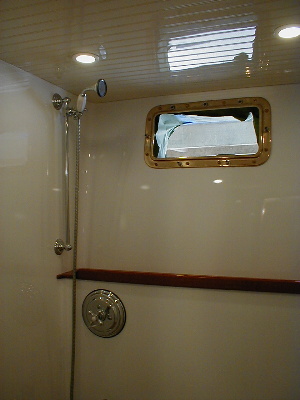

Master Shower and Aft-Guest Head
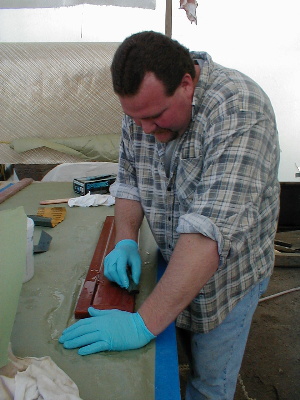
Wet-sanding Trim
Lee Norris and Catherine Williams journeyed down to check out the progress on the boat and the upholstery. Below Catherine shows off some fish-embroidered linens while Bryan and Lee digest their Harker’s Island seafood buffet lunches, and Mike Sasser of Coastal Canvas discusses boat cushion plans.
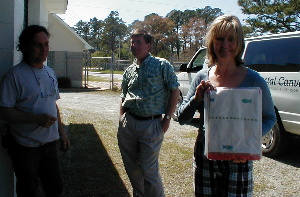
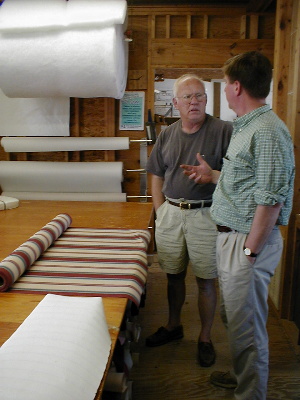
Cushions and Other Fun Stuff
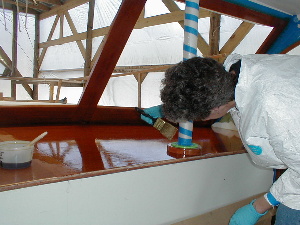
Jeanette Varnishing the Wheel Bench
It’s spring and all thoughts turn to…oyster gardens! A group of folks from the newly formed “Shellfish Gardeners of North Carolina” made a presentation at the last Marine Fisheries Commission meeting. The self-proclaimed “hobbiests” want to grow oysters underneath their docks in floating or suspended cages. Although they “wouldn’t mind munching one now and again,” the purpose of these floating gardens would be to clean water. “Oysters are filter feeders,” they emphasized. “Each one pumps up to 50 gallons a day, helping to clean impurities from the water.” Two million oysters held beneath NC docks and piers would filtrate between 50 and 100 million gallons a day! Sound too good to be true? Director Pres Pate thought so, pointing out that such a program would run into complicated issues pertaining to public trust waters, riparian rights, and human health and safety. “But Virginia does it,” one gardener pointed out. “Can’t we give it a try?” “At this point,” said Pate, who has grappled with this several times in the past, “we can agree to disagree.” Guess for now these gardeners are going to have to stick with begonias. Signing off for now, Barbara “Fish Doctor” Blake







